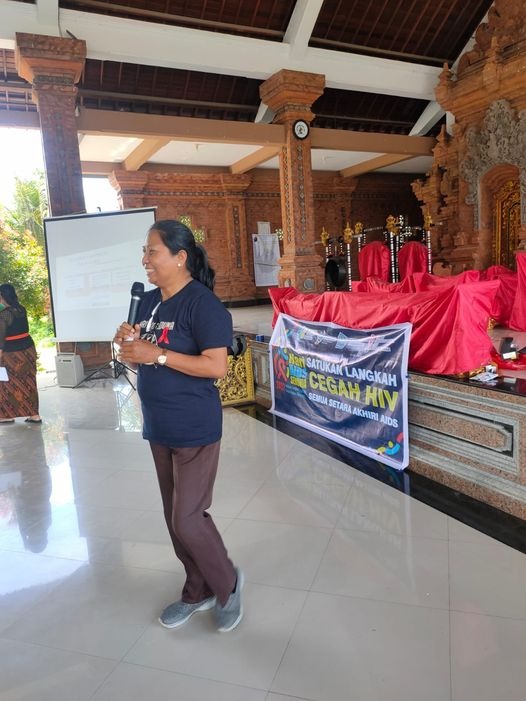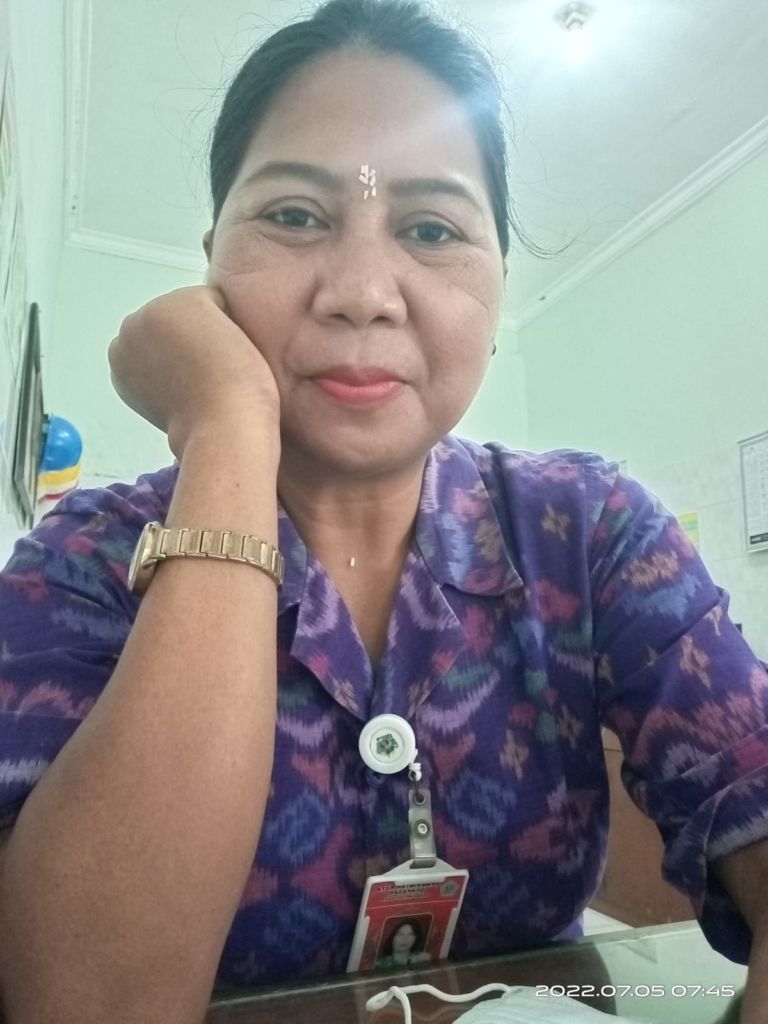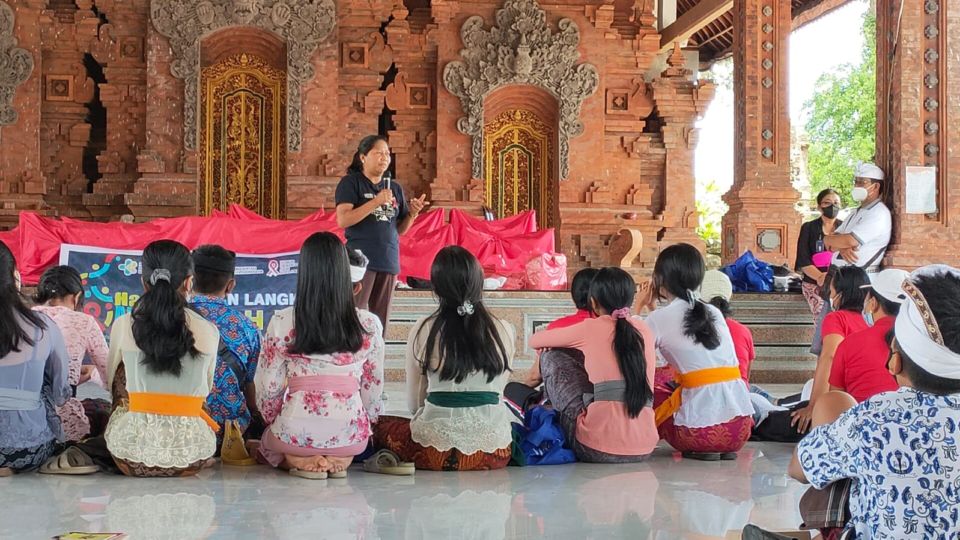In one of the corners of Prof. dr. I.G.N.G. Ngoerah General Hospital (more popularly known by its former name: Sanglah Hospital) in Denpasar, there is a voluntary counseling and testing (VCT) clinic that offers HIV testing and, more importantly, provides support for those affected by HIV/AIDS.
While medical workers are expected to be professional and supportive towards patients with HIV, at the end of the day, someone who has been in their shoes can provide a level of comfort and understanding that is incomparable and, in most cases, desperately needed.
Enter Ketut Rediten or, as she is more famously known amongst her peers at Sanglah’s VCT clinic, Bu (Madame) Desi.
The 48-year-old Balinese homemaker’s world was shaken when she took an HIV test in 2010 and the result came back positive. Her husband had been sick and was later diagnosed with HIV before Desi took her test. He died three months later.

To say that it was a life-changing experience for her would be a major understatement.
“I thought HIV was a death sentence at the time,” she said.
On top of that, Desi said that her in-laws essentially blamed her for the diagnosis – confirming this article by The Conversation that Indonesian women are often stigmatized by their family members after being diagnosed with HIV.
In a recent interview with Coconuts for World AIDS Day, which is today, Bu Desi said the trials and stigma she faced then is what made her decide to turn her life around and dedicate it to helping others in her situation.
“I don’t want others to experience what I experienced. I’m very sorry that discrimination from society still exists toward people living with HIV/AIDS,” Desi said when asked about her decision to volunteer at the clinic.
Desi has become a fixture at Sanglah’s VCT clinic since 2011 after becoming a volunteer representing the Kerti Praja Foundation, which is dedicated to medical outreach efforts in Bali. She and the other counselors at the clinic serve uniquely vital roles as they provide a sympathetic ear to people who might still be struggling with even the idea of having to undergo blood tests at the clinic.
In the case of a patient whose HIV test comes back positive, Desi becomes a shoulder to cry on, a pair of ears to listen and, furthermore, an open heart that becomes a lighthouse for the patient’s soul.
Below are the excerpts of Coconuts’ interview with Bu Desi in which the mother of four tells us about what she has observed over the past decade as a counselor and her hopes for the future.

Does the stigma toward people living with HIV/AIDS still exist even now?
There is still stigma, indeed, even though it has started to disappear in comparison to the past. [Based on] my experience, it is mostly patients who inadvertently stigmatize themselves. They are too frightened to even speak to their family and, in some cases, the family members forbid them from marrying other people and having children, even though modern medication allows them to do so without exposing their spouses or future children to HIV.
What about medical professionals? Are there still cases in which medical workers stigmatize the patients?
For now, I believe the stigma from medical workers is already beginning to fade away as I never hear of such cases anymore. In the past, it used to happen at the regency or district levels.
Compared to your own experience being diagnosed with HIV in 2010 and becoming a volunteer not long after, what are the differences that you have witnessed?
When I first became a volunteer, those who came to the clinic looked like people who did not have any hope to live, but now we are more open and can share with each other and support each other. But yes, indeed, there are still a few patients who are very discreet.
Is it true that many patients living with HIV are reluctant or even lazy about taking anti-retroviral drugs, even though it is free?
That is indeed true. Perhaps they feel fine, healthy, and bored after taking the medication daily and having to visit the health center every month.
What are your hopes for the future?
In 2010, information about HIV was not as accessible as it is nowadays. At the time, only VCT clinics could give proper information about HIV. For me, becoming a volunteer also helped in my own recovery because I became inspired by other people who have the same condition.
People living with HIV will be okay, especially if their family supports them, as long as they have good nutrition and, naturally, take their ARV medication daily.
For the future, we have to remain hopeful. I hope more and more people are becoming aware and join us in this fight from every corner to battle HIV so that there will be no more new infections in the future.




